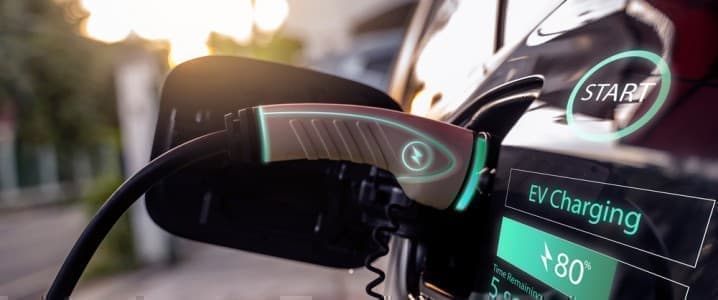While China turns to local brands of EV over Tesla, Indonesia’s natural resources show great potential for its battery manufacturing industry. Asia is starting to look like it may overtake the U.S. and Europe in the electric vehicle market as the effects of the global pandemic are steadily improving.
Consumer research carried out by CNBC suggests that Chinese consumers are primarily concerned about price and driving range when considering EVs. In 2020, despite the fall in demand in the auto market, sales by local EV manufacturers, such as Nio, Xpeng and Li Auto, remained stable and their share prices soared.
While Tesla remains the market leader, innovative Chinese start-ups could soon threaten this position. Nio’s basic EV options are significantly cheaper than its American counterpart, although several additional features are available at a cost.
China is one of the fastest-growing EV markets, with uptake expected to reach 11-14 percent by 2022, just behind Europe’s 12-15 percent projections. At present, China is the largest EV market in the world, selling around 1.2 million EVs in 2019. Thanks to the country’s quick response to the Covid-19 pandemic, as well as its economic recovery, China’s EV market is expected to rise quicker than that of the U.S. in the coming years.
Government subsidies of $3600 for the purchase of EVs until 2022 presents a strong incentive for consumers to make the switch from traditionally fuelled cars. In addition, EVs have, until now, been exempt from purchase tax. While the market has dipped in response to the global pandemic, it is expected to pick up steadily as the economy continues to improve.
Meanwhile, eyes are on Indonesia for its battery production potential. The country’s natural resources, including nickel, copper, bauxite, and nickel ore, making it perfect for vital EV components.
Indonesia plans to be a key part of the EV supply chain through the manufacturing of lithium-ion batteries. It currently holds around one-quarter of the world’s nickel reserves, which is key for battery production.
Related Video: Four of the Coolest Fictional Power Sources
However, the country must invest beyond manufacturing if it wants to establish itself as a major EV component producer in Asia. Tech, talent and renewable energy are just some of the areas that need to be developed hand-in-hand with manufacturing.
The Indonesian government plans to increase investment in EV batteries by $35 billion by 2033. In addition, China and other regional powers are investing in Indonesia’s mining and manufacturing sectors to advance the research and development of these energy sources.
In Japan, sales of Tesla remain strong following price cuts of 24 percent last month to $46,700 for its long-range Model 3 car in February. Many are making the switch in response to the government’s ambitious aim to ban the sale of gas-engine cars by the mid-2030s.
In addition, Japan is now able to import Teslas from Shanghai instead of the U.S. increasing the availability of the car in the region.
However, despite Tesla’s CEO Elon Musk saying Japan’s market was one of the most important, much of the Japanese population has still not heard of the car, in comparison to more well-known local auto manufacturers such as Nissan.
While Europe remains ahead of the curve in the EV market, thanks to favorable policy encouraging EV sales, Asia is steadily catching up. China presents a core market base for EVs and uptake in countries such as Japan and India is also increasing.
As governments around Asia begin to phase out the sale of gasoline vehicles and introduce policies to encourage EV sales, such as subsidies and tax breaks, the Asian EV market is likely to boom. While the U.S. continues to battle with a burdened economy and poor demand in response to the global pandemic, Asia is beginning to bounce back, making it a core auto market.
By Felicity Bradstock for Oilprice.com
More Top Reads From Oilprice.com:
- Is This The World’s Next Big Offshore Oil Region?
- Oil Soars As OPEC+ Sources Suggest No Production Increase
- Will Private Shale Firms Crush The OPEC Oil Rally?

















